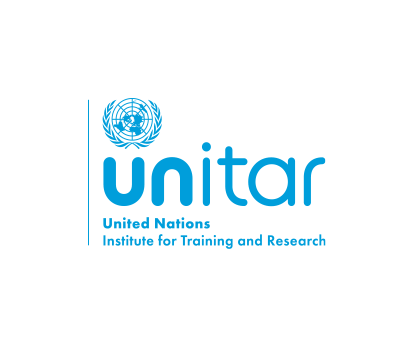
CIFAL Jeju-Online Workshop on Disaster Risk Reduction and Early Warning Systems for All through Effective Gender-Responsive Planning, Digital Government Transformation and Financing
“Today, one-third of the world’s people, mainly in least developed countries and small island developing states, are still not covered by early warning systems... This is unacceptable, particularly with climate impacts sure to get even worse. Early warnings and action save lives. To that end, today I announce the United Nations will spearhead new action to ensure every person on Earth is protected by early warning systems within five years.” - UN Secretary-General António Guterres on World Meteorological Day 23 March 2022 The 2030 Agenda for Sustainable Development places great importance on disaster risk reduction (DRR) as a cross-cutting element in achieving the Sustainable Development Goals (SDGs). The 2030 Agenda for Sustainable Development proposes concrete commitments to reduce risk, vulnerability, build capacity and promote resilience to disasters. Reducing disaster risk and building resilience are interrelated thrusts of the 2030 Agenda for Sustainable Development and the Sendai Framework for Disaster Risk Reduction 2015-2030. The Sendai Framework calls on governments to move towards risk-informed governance arrangements that include broader hazard and risk scope and incorporate the concept of systemic risk. Priorities of the Sendai Framework expressly call for strengthening disaster risk reduction planning, governance, and financing to reduce existing and prevent new disaster risks. The Sendai Framework also calls for people-centered, multi-hazard, multi-sectoral early warning systems (MHEWS) for improved disaster preparedness for effective response and recovery. In particular, Target G of the Sendai Framework advocates for a substantial increase in the availability of and access to multi-hazard early warning systems and disaster risk information and assessments to people by year 2030. Nine years to the day after the adoption of the global blueprint for disaster risk reduction by the United Nations Member States, the Gender Action Plan to Support Implementation of the Sendai Framework for Disaster Risk Reduction 2015-2030 was launched on 18 March 2024. It aims to accelerate the implementation of the Sendai Framework by substantially increasing resource allocations, activities and impacts of gender-responsive disaster risk reduction and substantially decreasing gender-related disaster risk by 2030. It identifies nine key objectives related to the four priorities of the Sendai Framework and recommends 33 actions that promote gender equality and the empowerment of all women and girls in disaster risk reduction. The 2023 Report of the Midterm Review of the Implementation of the Sendai Framework for Disaster Risk Reduction 2015-2030 and the Political Declaration of the High-Level Meeting on the Midterm Review, adopted by the UN General Assembly in May 2023, highlighted the current gaps in coverage and accessibility to multi-hazard warning systems globally. The Political Declaration recognized the need to develop further, invest in, and strengthen people-centered multi-hazard early warning systems in all countries, including through enhanced quality of and access to multi-hazard risk data. In 2022, the UN Secretary-General launched the Early Warnings for All initiative to ensure universal coverage of early warning systems by 2027. In a rapidly evolving world facing multiple, unprecedented crises of post-pandemic economic downturn, climate change, and wars, the world is also undergoing technological progress that it has not experienced before. With these backdrops, the importance of digital government transformation and its adaptation to inform, engage, and protect communities through Early Warning Systems (EWS), is more crucial than ever. The transformation from the traditional disaster risk management approaches with a focus on relief and rehabilitation towards inclusive, participatory, prevention-oriented planning and innovative financing mechanisms aimed at building resilient communities against disasters has been.
The online workshop, while promoting risk-informed planning, governance and finance, will: 1. Improve understanding of key DRR and EWS concepts and support gender-responsive localization and implementation of the Sendai Framework for DRR 2015-2030 target on multi-hazard EWS; 2. Enhance familiarity with Making Cities Resilient 2030 (MCR2030) resources to enhance local resilience and inclusivity and explore related tools for assessing MHEWS at the local level and preparing evidence-based risk reduction and resilience planning; 3. Introduce the Handbook on Strengthening Resilience in Cities and Local Communities through Innovation and Digital Governance as well as the Toolkit on Risk-Informed Governance and Innovative Technology for DRR and Resilience to specifically provide guidance on leveraging data and digital government for DRR and resilience, including women as the primary responders; 4. Improve understanding of the 11 principles of effective governance for the SDGs for building inclusive local resilience; 5. Introduce financing framework and knowledge for enhancing resilience to disaster through gender-responsive planning, governance, and implementation, with a particular emphasis on delivering EWS in early warning-deficient areas aligned with the Early Warnings for All initiative; 6. Enhance the understanding of gender equality, human rights and disaster risk reduction concepts and its interlinkages; 7. Promote gender-responsive approaches, tools, checklists, and good practices for gender mainstreaming in DRR. These resources can be adapted to other areas, including Digital Government Transformation and Early Warning Systems (EWS)
The training will consist of lectures and thematic presentations by experts, case study presentations, Session 3: Financing Framework for Disaster Risk Reduction and Early Warning Systems Session 2: Digital Government Transformation and AI for Early Warning Systems: Accelerating Resilience and Gender-Responsive Sustainable Development, interactive Q&A discussions, and knowledge check quizzes and exercises. The workshop is composed of three Sessions and the thematic focus of each session will include: Session 1: Setting the Scene: Disaster Risk Reduction and Gender-responsive Early Warning and Early Action,
Pre and Post knowledge assessment tests Lectures and presentations by experts Good practices shared by experts Participant engagement activities: quizzes and digital white board Q&A
This training is open to national and local government officials including SDGs, Sendai Framework, climate and urban development focal points and other stakeholders from national government, civil society and institutions in Asia-Pacific and beyond interested in or supporting early warning systems design and implementation, disaster risk management, climate change adaptation, building resilience, innovative finance mechanism for climate action and sustainable development.
Due to the unexpected circumstance, QA form is being submitted after the workshop.

